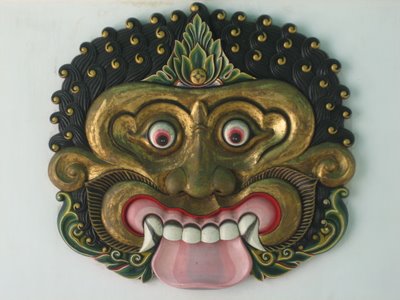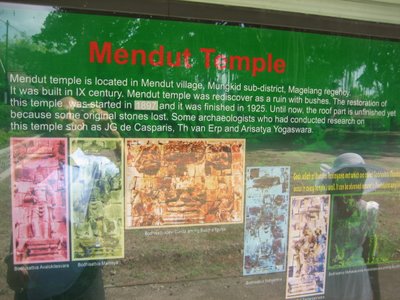Making my way back to the hotel, I hit up the travel shop for a better means of getting around and seeing what’s unique about Manado and the surrounding areas. Wasn’t expecting the travel agent to jump from behind his desk and volunteer himself so quickly, but I suppose considering his options- getting some fresh breeze in the face sounded more fun and lucrative. For $15 a day, I had a full time guide + $2.50 scooter rental and gas.
Mas Rizal and I worked out a quick plan to maximize my time here. Today we head South through the Minahasa countryside of Tomohon and around lake Tondano. Tomorrow we’ll visit Bunaken island & drive West through ethnic Sanger territory.
I grabbed a spare helmet & held on to the back of our 125cc steed for the next 7 hours (180 km). Whew! my backside would really appreciate if I didn’t do that again,,, but I knew I had more coming the next day.
It’s hard to compete with a $2.50 vehicle rental and 120 miles per gallon of gas (200 km).
It was an interesting ride!
Passing by the police academy, I heard an opinion I’ve heard several times before: police, in general, have a negative public image here. Mas Rizal explained this image is propelled by two things: bribe hunting and non-local composition.
Police have very low salaries in Indonesia (already mentioned), and they have a number of means at their disposal to use their official capacity to augment their paychecks. Officially, the abuse of power is illegal. Mayors and police chiefs make speeches about stamping out corruption. In practice, it happens so often, no one blinks twice. Locals know the traffic fines, the semi-official authorization to operate business fees and security racket costs are going straight into a uniformed pocket. Whether this is a fair description of “reality” or not,,, it’s a popularly held perception; and perception is what people believe.
If local Manado men wish to enter the police force, national police policy forbids them to serve in their home district. The majority of police here in Northern Sulawesi, are thus Javanese. Rizal says the perception is, there’s not much sensitivity on behalf of police to local issues. There are advantages and disadvantages to everything I suppose.
An interesting observation about the city of Manado is that it is religiously split (Christian-Muslim) rather evenly. Some of that has to do with several generations of transmigration policy, systematically shipping predominantly Muslim Javanese to many of the surrounding islands to relieve over-crowding on Java.
The moment you set foot outside the city limits, that ratio seems to shoot to an 85% Christian- 10% Muslim (5% other) ratio,,, with an overwhelming Catholic majority.
It’s handy that I just finished my book on Muslim-Christian relations. (=
Another note of interest, for anyone who has heard of recent violence done in the name of religion in Poso (Central Sulawesi,,, a few hundred miles south of here), where Muslims and Christians seem to be duking it out, burning each others churches and beheading little girls, etc. Manado has a long history of peaceful inter-religious relations, and is proud of the fact that there has never been religious violence here.
In my opinion, most of the violence done in the name of religion is false advertising. There’s usually some other purpose or goal, hidden behind a banner of faith, because it’s hard to get people motivated about politics & power struggles & whatever else is on the agenda. Seems to me, religion is often used as a handy political tool to generate excitement over things that have little to do with theology or beliefs.
Three quick examples: The Dutch were predominantly Christian, therefore anger directed towards colonial powers (over unfair labor policies, for example) is often described in synonymous terms with Christians. President Sukarno’s failure to insert the Jakarta Charter into the preamble of the 1945 Indonesian Constitution (paving the way for Sharia law & Islamic statehood) was seen as a Christian conspiracy. Under 32 years of President Suharto (Indonesia’s New Order period: 1967-1998) many Christians benefited disproportionately over their Muslim countrymen in terms of high government positions, job advancement/opportunity, wealth, education, etc. Although Suharto was a Muslim, there was a perception of a Christian conspiracy; and discontent with political/bureaucratic policy translated into anger over religion.
Getting back to my trip…
Here’s a hindsight view of Manado from the mountain pass, heading South. Manado is a deep water port, once used by the Spanish & Dutch as a launching point to & from the nearby Spice Islands. The contours of the city are pretty easy to make out from here.




















































